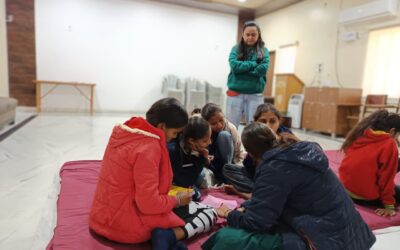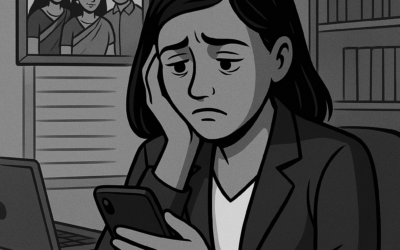*** trigger warning*** – sexual harassment
On an otherwise ordinary day, I was heading home from work on a bike at 5:30pm, under the sunny sky, amidst bustling streets crowded with people rushing home. The rider, around 50 years old, picked me up from my office, making sure he knew my ‘exact’ address. Without much thought, I hopped on, drowning out the noise of the traffic by tuning into my earphones. 500 meters into the ride, the rider took the liberty to push himself back.
Pushed until there was no space for me to sit, pushed until he decided the distance was close enough. Ignoring my pleas to slow down and give me space, he veered off course and accelerated. My cries seemed to fall on deaf ears, as he seemed to have predetermined his course of action. My jostling and my cries made him eventually stop, only to exercise his ‘right’ to grope my thigh. “I have come so far, only for you. Let me pay you”.
Tears welled up, and the helplessness of feeling helpless challenged my hyper-independent mind. I felt paralyzed, unable to comprehend the situation unfolding on a bustling street in broad daylight. At that moment, a 50-year-old man forcibly reminded me of my perceived worth in society — a value subject to the whims of men. My struggles eventually compelled him to stop, and I did the only thing I could think of — I ran. I ran until I found an auto. I ran far enough to escape what had happened.
Regrettably, this isn’t the first time such an incident has occurred, and sadly, it won’t be the last. I’ve made the decision to stop taking bikes to work, much like I’ve avoided sitting in the male compartments of metros and refrained from traveling alone on buses. It’s a form of conditioning — the internalization of the message, “your safety is in your hands”.
A parallel here is established to the restrictions imposed on girls in the community where I work — limitations on their education, their career prospects, their financial autonomy, their control over their bodies, and ultimately, their aspirations.
In the two months since I began my work as a fellow in Patna, Bihar, my primary focus has been to support the upliftment of young women from marginalised backgrounds on the outskirts of the city. Each day, I find myself consumed by thoughts of how I can contribute to making a meaningful impact on their lives. The challenges they face, from domestic violence to early marriage, from substance abuse to illiteracy are stark reminders of the harsh realities they endure.
Tragically, their families often perceive them as mere financial burdens. To them, educating these girls seems like a waste of resources. From a young age, I’ve recognized that beneath these ideologies lies a fundamental devaluation of women’s lives. The pervasive sense of control over their gender stemming from this devaluation leaves little room for any semblance of possibility.
Certainly, women face a multitude of financial disparities that span across both, income and expenditure. Women earn 16 percent less than men across the world on average. It will require over a century to close the gender gap at the current rate of progress. Additionally, women are less likely to engage in the labor market. Women in the same age group with at least one child under six experience a ‘motherhood penalty’ as the gender gap widens from 29.2 percent to 42.6 percent, with female participation at 53.1 percent and male participation at 95.7 percent. Women are also disproportionately represented in informal and vulnerable work sectors. Moreover, environmental degradation and climate change have harsher consequences for women and children.
Conversely, women often bear the brunt of higher costs for personal care, feminine hygiene, beauty products, clothing, and healthcare. Women aged 19 to 34 spend over twice as much as men annually on healthcare. The pink tax, or gender-specific pricing on women’s goods, contributes to the disproportionate financial burden that women face. Increasing intersectional differences also exacerbate these issues.
In the face of being labeled ‘financial burdens’, women are conditioned to accept this verdict as a choice of our own making. But the truth couldn’t be further from it. The cost of womanhood extends far beyond mere currency—it’s a toll paid in the currency of conditioning.
We are conditioned to pay extra and take cabs instead of bikes. To justify monthly purchases of sanitary products that address a natural bodily function experienced by half the population. Taught to set aside ‘sick’ leave for period days, a necessity disguised as a luxury. Conditioned to invest in skincare and makeup as tokens of societal acceptance, to spend on hair removal, and to view our natural selves as somehow unnatural. We are conditioned to believe that education and establishing a career are unnecessary expenses.
So, is this truly a situation created by women for themselves, or is it a product of a society meticulously crafted to cater to the needs of men? The answer seems glaringly obvious.




0 Comments